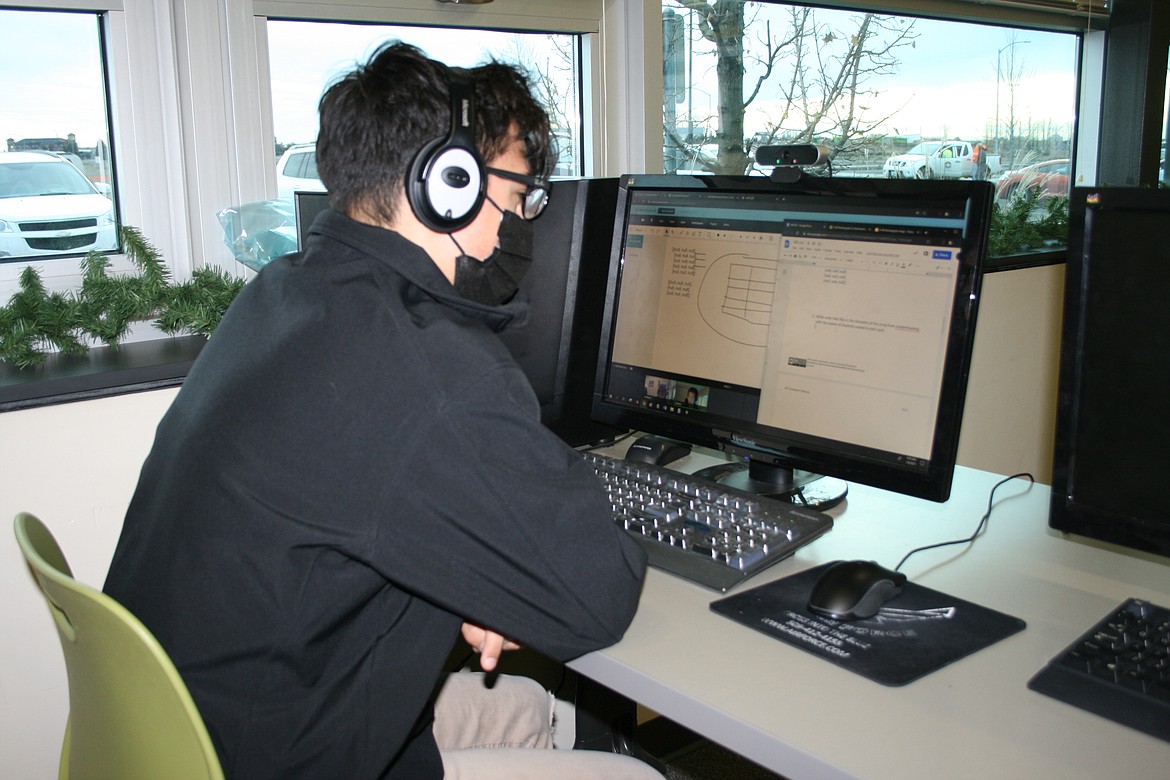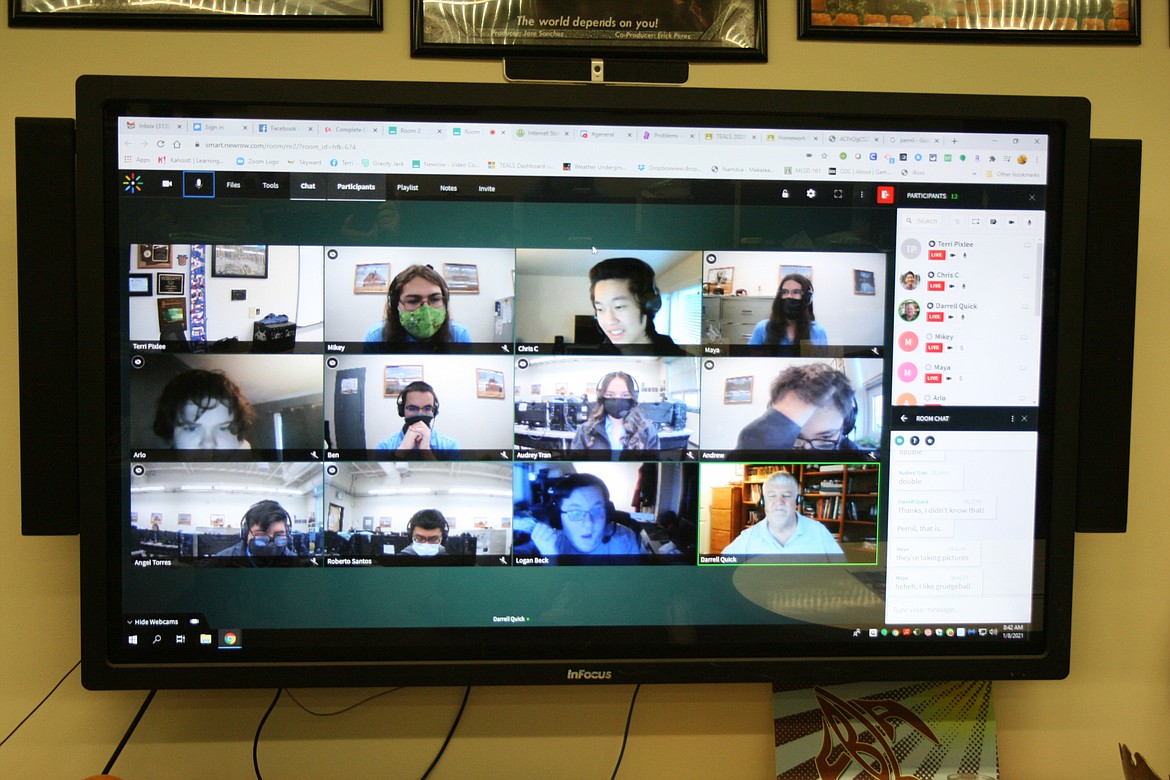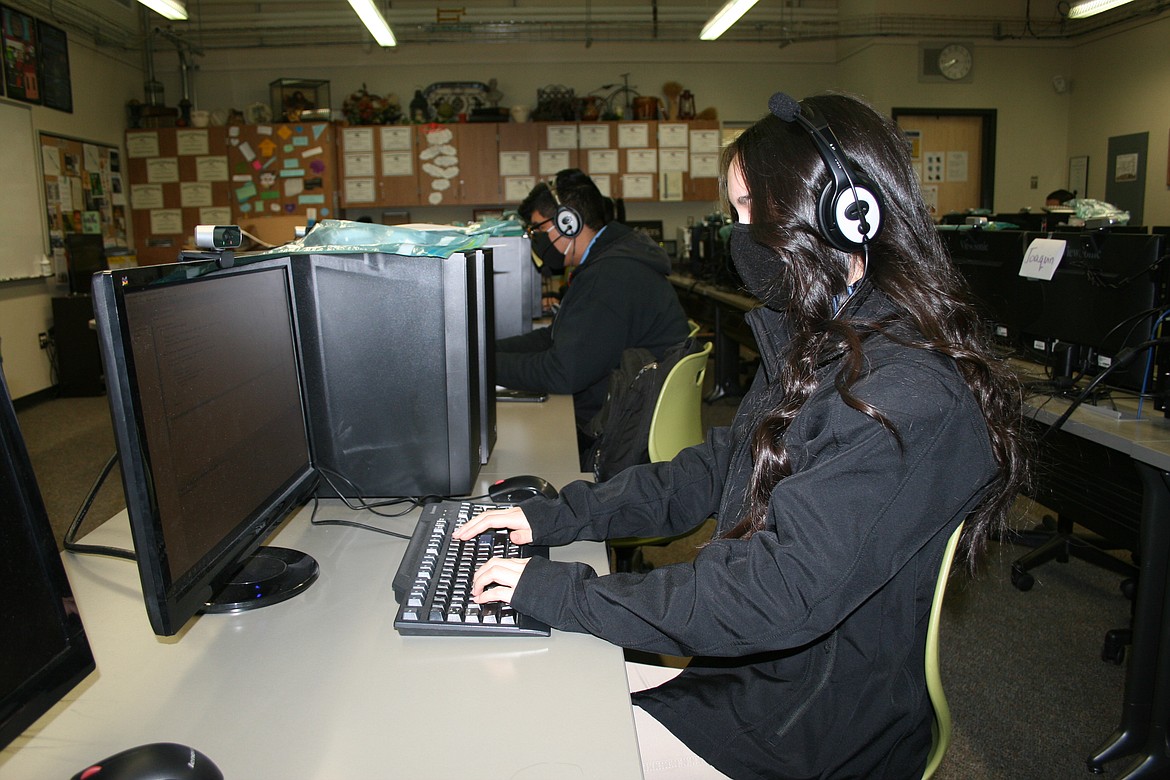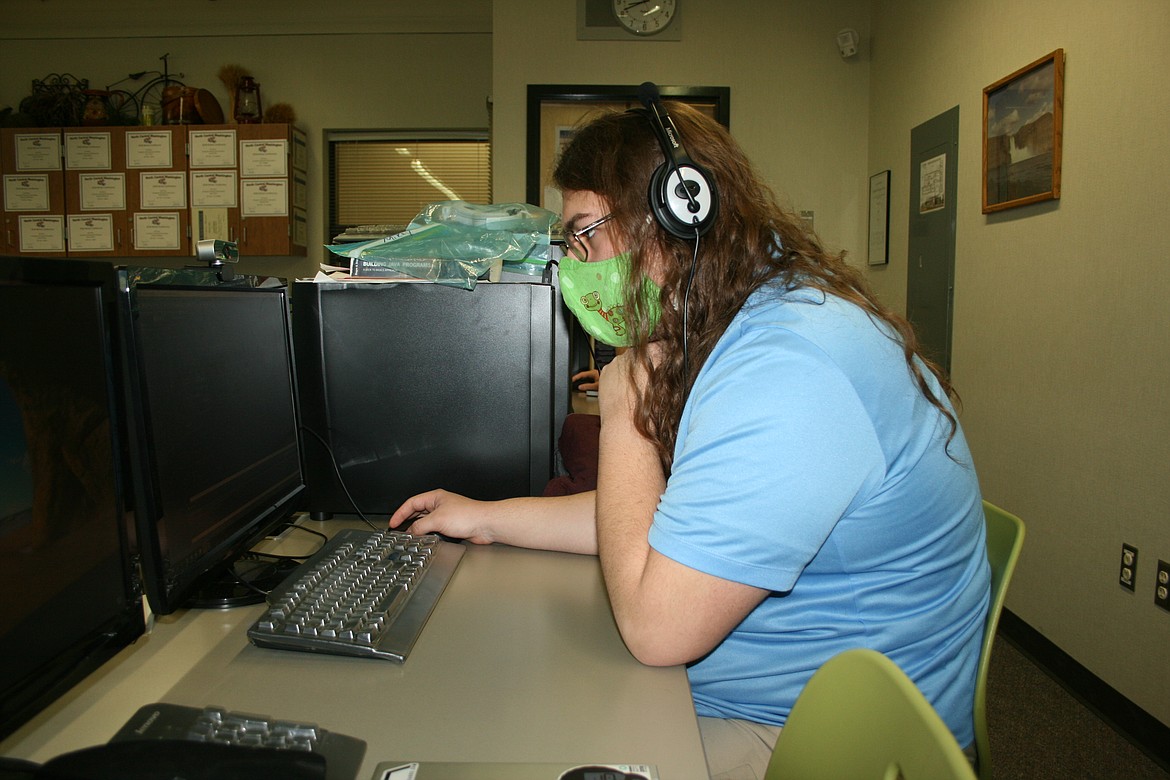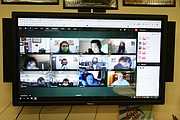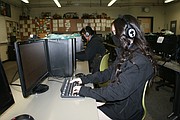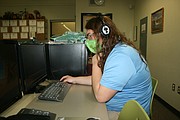Class gives students look at the computer programming industry
CHERYL SCHWEIZER | Hagadone News Network | UPDATED 4 years, 11 months AGO
Senior Reporter Cheryl Schweizer is a journalist with more than 30 years of experience serving small communities in the Pacific Northwest. She began her post-high-school education at Treasure Valley Community College and enerned her journalism degree at Oregon State University. After working for multiple publications, she has settled down at the Columbia Basin Herald and has been a staple of the newsroom for more than a decade. Schweizer’s dedication to her communities and profession has earned her the nickname “The Baroness of Bylines.” She covers a variety of beats including health, business and various municipalities. | January 13, 2021 1:00 AM
MOSES LAKE — High school student Andrew Pannullo said he’s learned more than the techniques of coding at the Columbia Basin Technical Skills Center.
“I’ve been doing this (computer programming) for about four or five years, and I think now it’s finally hitting me that – wow, this is way more than I thought,” he said.
The Technology Education and Literacy in Schools (TEALS) program brings software engineers to high school classrooms. Along with the technical instruction, they give the students a look at the expectations of the industry. This is the first year for the program, sponsored by Microsoft Philanthropies, at the skills center.
Skills center instructor Terri Pixlee said it’s part of an AP (advanced placement) course.
“They’re actually working towards the exam,” she said.
Students who pass the test receive college credit.
“There have been points this year when I felt like, ‘Is this right for me?’” Pannullo, of Moses Lake, said.
The class focuses on video game design, and that seems like an attractive career. But there’s a lot more involved in it than he anticipated, he said.
Pixlee said that’s one of the lessons from the industry instructors, and she teaches a section, separate from the TEALS class, on the business side of the industry.
“There are expectations,” she said.
The nine students in the class meet every day for an hour with volunteer instructors via video conference. Each school is assigned multiple instructors, with two teaching the class on any given day.
“And I’m telling you, it (the curriculum) is tough,” Pixlee said. “It’s tough for me. I’ve been teaching programming for a number of years, but this is a new language for me this year. And they are delving deeper than I ever have before.”
On Friday morning, one of the subjects was writing programming that could recognize unique elements.
“We were kind of talking about looking for particular names in an array,” explained student Maya Armacost-Felton, of Moses Lake.
That kind of code comes in handy when trying to navigate the oceans of information available online.
“Pretty much if you wanted to search for anything, this is what you would want to do,” Armacost-Felton said.
It’s one of the building blocks for a search engine. A very basic building block.
“This is much more baseline than that (building a search engine),” Armacost-Felton said.
It’s challenging enough that students have to pay attention.
“Engagement is always necessary,” Armacost-Felton said. “The way that we’re doing it — we have everything from worksheets to practices to actual coding, which I think is really important for learning. You can’t just take notes and listen, you’ve got to actually do all this stuff to learn it.”
Pannullo said the instructors also talk about expectations, something he hadn’t really thought of before.
“It’s a lot of deadlines, sticking to your work, and it’s a lot of staying on top of — everything,” he said. “Making sure that you get things in on time, and you work well with the people around you.”
In fact, group projects and collaboration are an important part of the curriculum.
That was something kind of new for him, Pannullo said.
“Before this, I would always prefer to work on my own, because I feel better at my own pace,” he said.
But the instructors, Darrell Quick and Chris Chen, told him there will be times when he might get stuck. And when that happens, “you’ll remember that you’re always going to have people at your level, with you,” Pannullo said.
That’s been a revelation.
“These are very important skills. Collaboration is probably the biggest skill you can have,” he said.
The instructors have shared some of their own experiences, he said, including times when, in Quick’s words, he was stuck.
“But that’s where he was saying, when he gets stuck, he has maybe, 10, 15 people around him who are a new set of eyes,” Pannullo said.
Pannullo has seen the value of collaboration.
“And in that same situation, I have all of these guys,” he said. “It’s definitely been an experience.”
Cheryl Schweizer can be reached via email at [email protected].
ARTICLES BY CHERYL SCHWEIZER

More rain for Cascades, high winds for Columbia Basin this week
LEAVENWORTH — A second strong winter storm is projected to hit Washington this week, bringing heavy rains back to areas that were hard-hit by rain and flooding last week. Steve Bodnar, meteorologist with the National Weather Service office in Spokane, said rain is forecast to start Monday, but won’t last as long.

Revised Moses Lake ordinance designed to recover some MLFD costs
MOSES LAKE — An ordinance revision approved by the Moses Lake City Council will allow more consistent billing of insurance companies in cases of emergency response by the Moses Lake Fire Department. In certain circumstances, property owners or vehicle owners may be responsible for paying whatever emergency response costs are not covered by insurance. The revisions passed on a 6-1 council vote Tuesday, with council member Victor Lombardi voting no.

Quincy EP&O levy to go to voters
QUINCY — Quincy School District voters will be asked to accept or reject a four-year educational programs and operations levy in a special election in February. If it’s approved, it would replace the levy approved by voters in 2022. District superintendent Nik Bergman said money raised through the levy accounts for about 16% of the district’s budget. “The state doesn’t fully fund a lot of programs,” Bergman said. “It’s used to fund our highly capable (program) and STEAM enrichment. Some of it is used to fund special education, early learning, the arts, music. We have a music program that is just flourishing right now, and I can connect that to the community support of the levy.”

